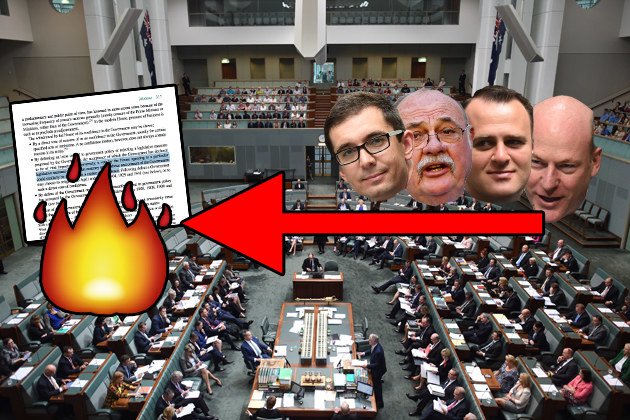As Australia's politicians gear up for what feels like the billionth attempt to legalise marriage equality, one paragraph in the parliamentary handbook has people worried the latest push could also completely sink the government.
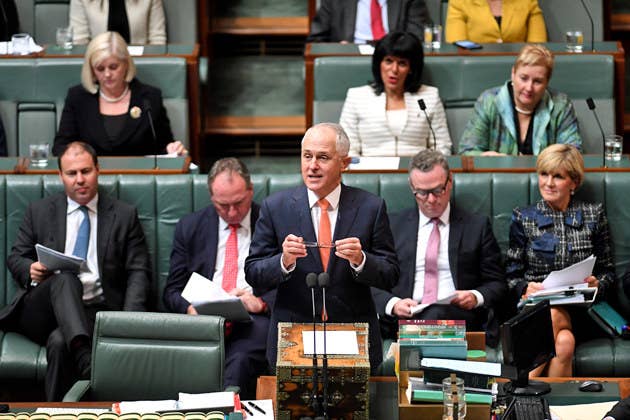
To understand the complicated and complex parliamentary clusterfuck, we first need to set some bloody ground rules, which include the fact all this might not happen.
As soon as next Tuesday, the government's party room could discuss whether to dump or proceed with its marriage equality plebiscite, which failed to pass the parliament late last year.
There are a few options open to prime minister Malcolm Turnbull. One involves re-committing the government to the original plebiscite, and perhaps even re-introducing it to the Senate to put pressure on Labor.
Another would be to hold a "postal plebiscite", with ballots distributed by Australia Post. This proposal has the support of conservative Liberals.
If the last few days are anything to go by, those solutions would not satisfy at least four Liberal MPs - Trevor Evans, Warren Entsch, Tim Wilson and Trent Zimmerman - who've left the door open to invoke a nuclear option.
This would involve the four amigos crossing the floor on a suspension of standing orders (an attempt to derail the government's agenda), giving the parliament the 76 votes it would need to bring on a debate on a marriage equality bill.
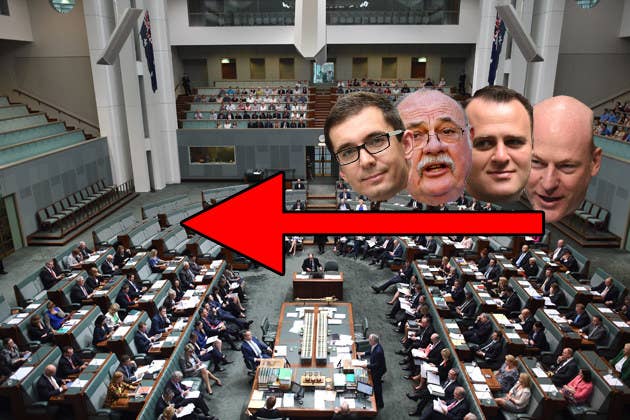
Number crunchers believe with Evans, Entsch, Wilson and Zimmerman voting "yes" the suspension of standing orders would have exactly 76 votes. Bang on.
One of the rebel Liberal MPs Tim Wilson (left) has already declared he wouldn't vote for a suspension of standing orders if the motion was moved by Labor, but hasn't said if he'd put forward his own motion, or vote on one put forward by the crossbench.
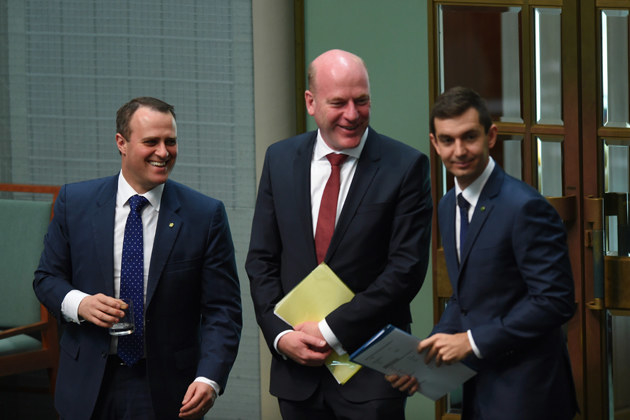
Regardless, BuzzFeed News understands Labor has absolutely no qualms about Wilson - or anyone else - bringing forward the suspension of standing orders, committing to vote on the motion.
The parliament would then be forced to debate and vote on a marriage equality bill, maybe even fellow Liberal senator Dean Smith's bill.
If the House of Representatives and the Senate had the numbers, and it appears they do, Australia could get marriage equality legalised against the wishes of the government.
But there's one BIG fucking problem if that happens, and it's buried deep inside the handbook which governs the procedures of the House of Representatives.
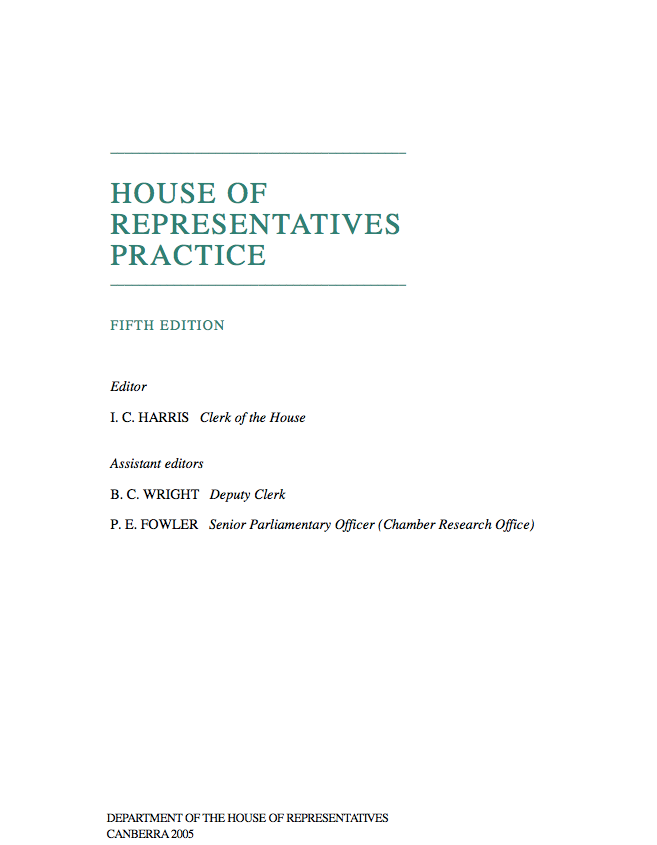
In chapter nine, under Motions, there's a whole section dedicated to outlining how the government could come under threat by losing its "confidence".
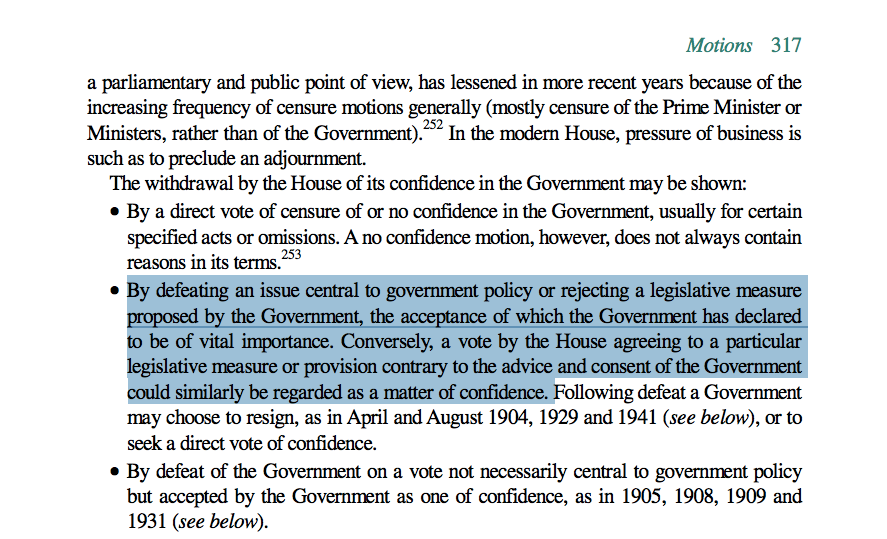
The key section, which could feasibly relate to the government losing a majority vote on marriage equality, reads:
The withdrawal by the House of its confidence in the government may be shown ... By defeating an issue central to government policy or rejecting a legislative measure proposed by the Government, the acceptance of which the Government has declared to be of vital importance. Conversely, a vote by the House agreeing to a particular legislative measure or provision contrary to the advice and consent of the government could similarly be regarded as a matter of confidence.
Given this "no confidence" rule, could the Turnbull government getting rolled on marriage equality mean it would need to resign, or be dissolved?
Well, the rules go on to cite a very old book Cabinet Government, written by Ivor Jennings: "It must not be thought ... that a single defeat necessarily demands either resignation or dissolution. Such a result follows only where the defeat implies loss of confidence.
"What a government will treat as a matter of sufficient importance to demand resignation or dissolution is, primarily, a question for the government."
Therefore, the answer is yes and no.
The handbook lists eight times in Australian political history where prime minister's losing major votes led to a resignation or dissolution of the government, with all in the first half of the 20th century.
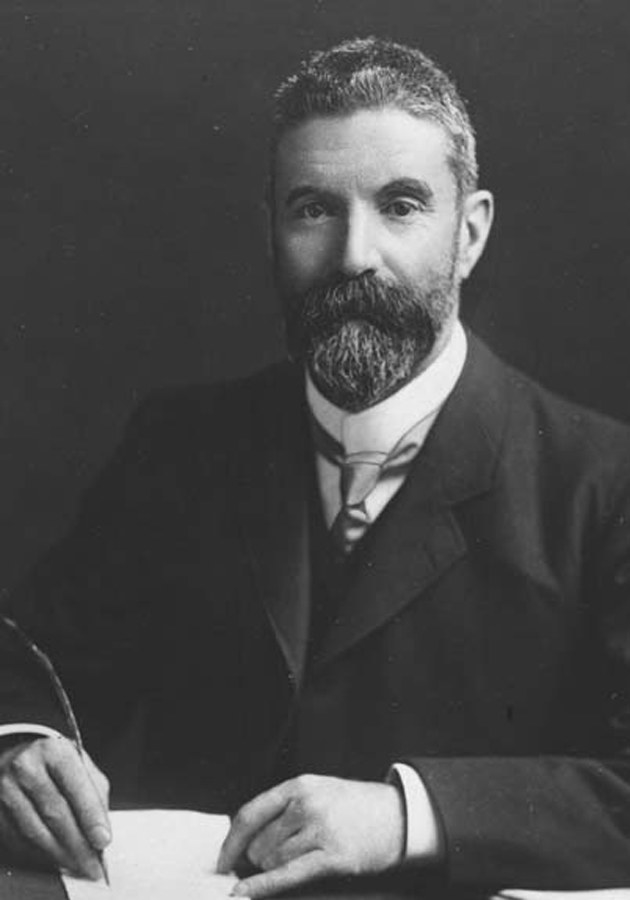
According to the rule book, prime minister Alfred Deakin (pictured) was the first in 1908, after his government lost a vote 29-38 on an arbitration bill.
But there are other instances where the government losing a vote in the house DIDN'T result in resignation or dissolution.
Certainly, the government losing the marriage equality vote would kick off absolute scenes in parliament, which could eventually lead to Labor, or even more dramatically a disgruntled conservative MP, to move a "no confidence" motion in the government.
Or, to avoid that, Turnbull would visit the governor-general and report that his government had lost the confidence of the parliament. Drama.
If you want to know how a big deal it would be, check what Christopher Pyne said when the Labor government went down 71-70 in a vote that required 76 votes to take effect.
Regarding the possibility of Liberals crossing the floor on same-sex marriage, a Coalition MP pointed me to this… https://t.co/600jYmzmpS
Now, of course, we're getting rather ahead of ourselves.
The four Liberal MPs have declared publicly they only want to have the debate in the party room next week in an effort to get the government to dump the plebiscite and give its members a free vote on the floor of parliament.
But BuzzFeed News has spoken to some behind the recent pro-marriage equality push who don't want to publicly discuss the nuclear option, for fear it could put it all at risk.
The Australian's David Crowe wrote on Tuesday that conservatives are also are keenly aware of the lasting damage to the government's "confidence" that could come with the Liberal MPs crossing the floor.
"If the government believes it must insist on the plebiscite at all costs, the argument can turn into a majority vote against the government on procedure as well as marriage," Crowe wrote. "Some conservatives liken this to a vote of no confidence in the government — an exaggeration, but a sign of how it would provoke lasting hatreds within the Coalition."
It's a complex hypothetical being spoken about behind closed doors, as politicians grapple with what'll happen if Australia gets marriage equality against the wishes of the government.
